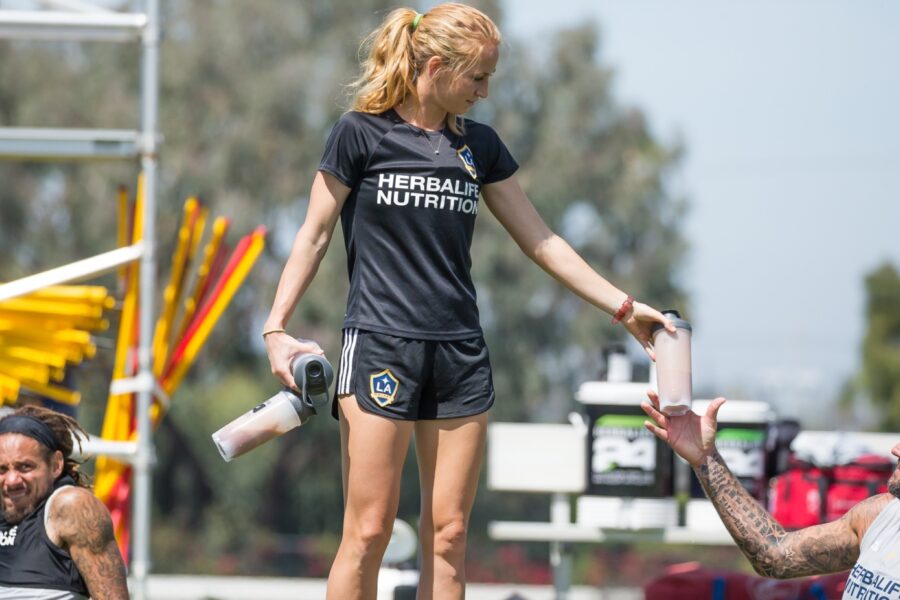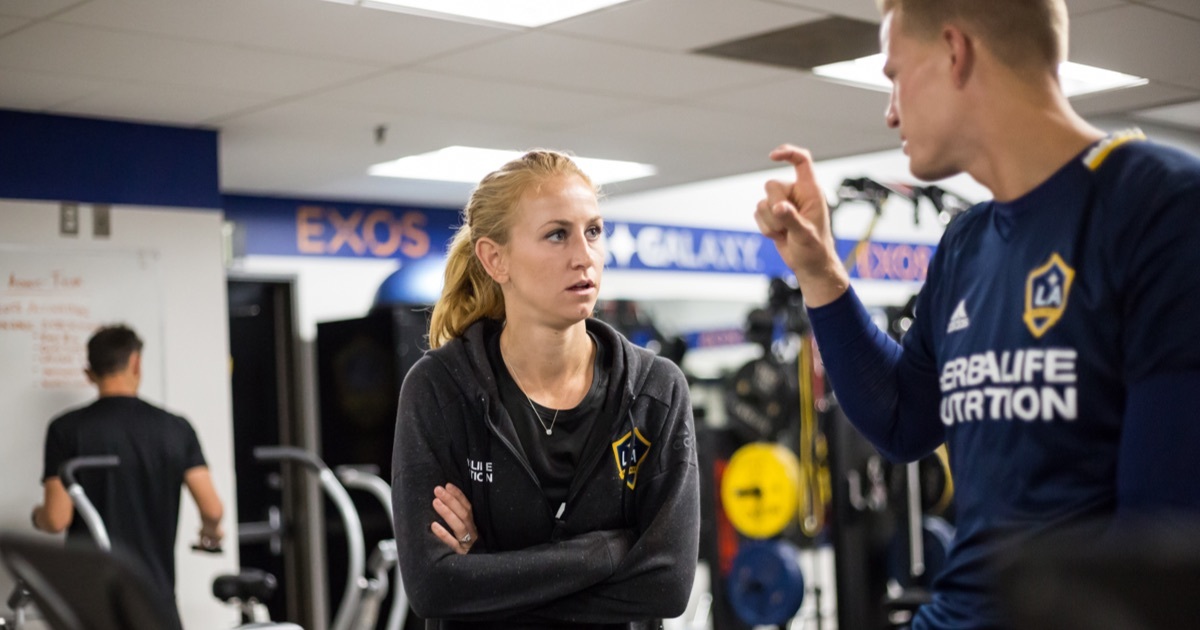The Importance of Nutrition for Club Teams

Kristen Andrews, the Sports Performance Dietitian for the Los Angeles Galaxy of Major League Soccer, as well as the US Men’s National Team explains why clubs should prioritize nutrition with their athletes.
My name is Kristen Andrews, and I’m the Sports Performance Dietitian for the Los Angeles Galaxy of Major League Soccer, as well as the US Men’s National Team. I’m a Registered Dietitian Nutritionist by training, have a Master’s degree in Nutritional Science, and am a certified strength and conditioning specialist.
As the Galaxy’s Sports Performance Dietitian, my main job responsibility is to oversee the club-wide sports nutrition program. That includes:
- Our large food service operation
- The provision of supplements
- Nutrition education
- Hydration testing
- Body composition measurements
- Recovery strategies
- and more
"What you eat quite literally provides energy for everything you do."

Traditionally, sports nutrition has inhabited a space dominated by the use of protein powders, sports drink, and supplements. There really wasn’t much focus on well-rounded intake of food at all. That is quickly changing thanks to sports dietitians around the globe working tirelessly to teach athletes and coaches that the food they eat really does make a difference in the long haul. Professional teams from every sport are beginning to recognize the role of chronically-sound nutrition in improving a multitude of performance indicators. This development should trickle down to club directors and coaches.
A popular visual used to explain the importance of nutrition is an empty gas tank accompanied by the saying “Food is Fuel. It’s a simple yet effective visual to get to the root of why athletes, coaches, and parents should care about what they put in their bodies. What you eat quite literally provides energy for everything you do. Nutrition has an impact on an athlete’s ability to recover, avoid injury, build muscle, lose body fat, gain strength, increase agility, strengthen their immune system, increase adaptive responses to exercise, train their gut for optimal nutrient absorption, and shorten the return to play after injury.
"What ultimately matters most for athletes is how they perform."

I’ve worked closely with many professional soccer players who come to me surprised to notice that they feel better out on the field after working hard to improve their diets. And that is perhaps the most important point. Seeing improvements in body composition is nice, as is increasing your one-rep max in the back squat. But what ultimately matters most for athletes is how they perform, and I don’t know of a better way to improve performance than to help athletes learn how to consistently feel on top of their game - a factor that is hard to quantify and yet decidedly influenced by all the previously-mentioned (nutrition dependent) markers.

Developing new nutrition habits is not easy. In fact, many of the athletes I work with require constant feedback to promote good decision making. Educating athletes about the importance of nutrition when they are young is the most effective way to create lasting behavior change.
When I work with the Galaxy academy players on developing a nutritional knowledge base, I know that by the time they work their way up to our first team, their nutritional foundation will be heads and shoulders above some of our current players (who have unfortunately lacked access to nutritional guidance throughout their careers). This investment will make them healthier athletes, more reliable performers, and better professionals in the future - a win for the athletes, their parents, and the club. This same positive outcome is possible for clubs across the country who decide to prioritize providing nutrition education to their young athletes.

"Maximizing nutrition is one of the ways club directors and coaches can ensure their athletes have every opportunity to be successful."
Okay, so you understand just how important nutrition is for the development of athletes. Now what? How do you go about providing this much needed information when you’re not an expert yourself? Good news! There are registered dietitians, and more specifically, sports dietitians (who hold a specialized credential in sports nutrition), across the country who are able and willing to help.
Club directors and coaches should not hesitate to contact sports dietitians to visit their teams and deliver nutrition talks. These nutrition professionals have nutritional handouts, information on how to navigate nutrition during tournaments, and they can help you create a plan to ensure that players are fueling properly, hydrating, and recovering. One way to identify sports dietitians in your area is to visit the Sports, Cardiovascular, and Wellness Nutrition dietetic practice group website, where you can browse through a registry of sports dietitians and find the one that meets your needs.
The bottom line is that in today’s world of competitive sports, it takes more than just talent to make it to the top. Maximizing nutrition is one of the ways club directors and coaches can ensure their athletes have every opportunity to be successful. Here’s the best part - you are not alone in this pursuit, and sports dietitians are here to help offer guidance. All you have to do is ask.
